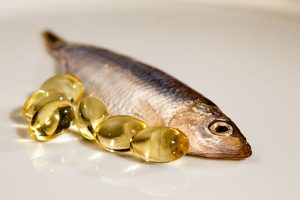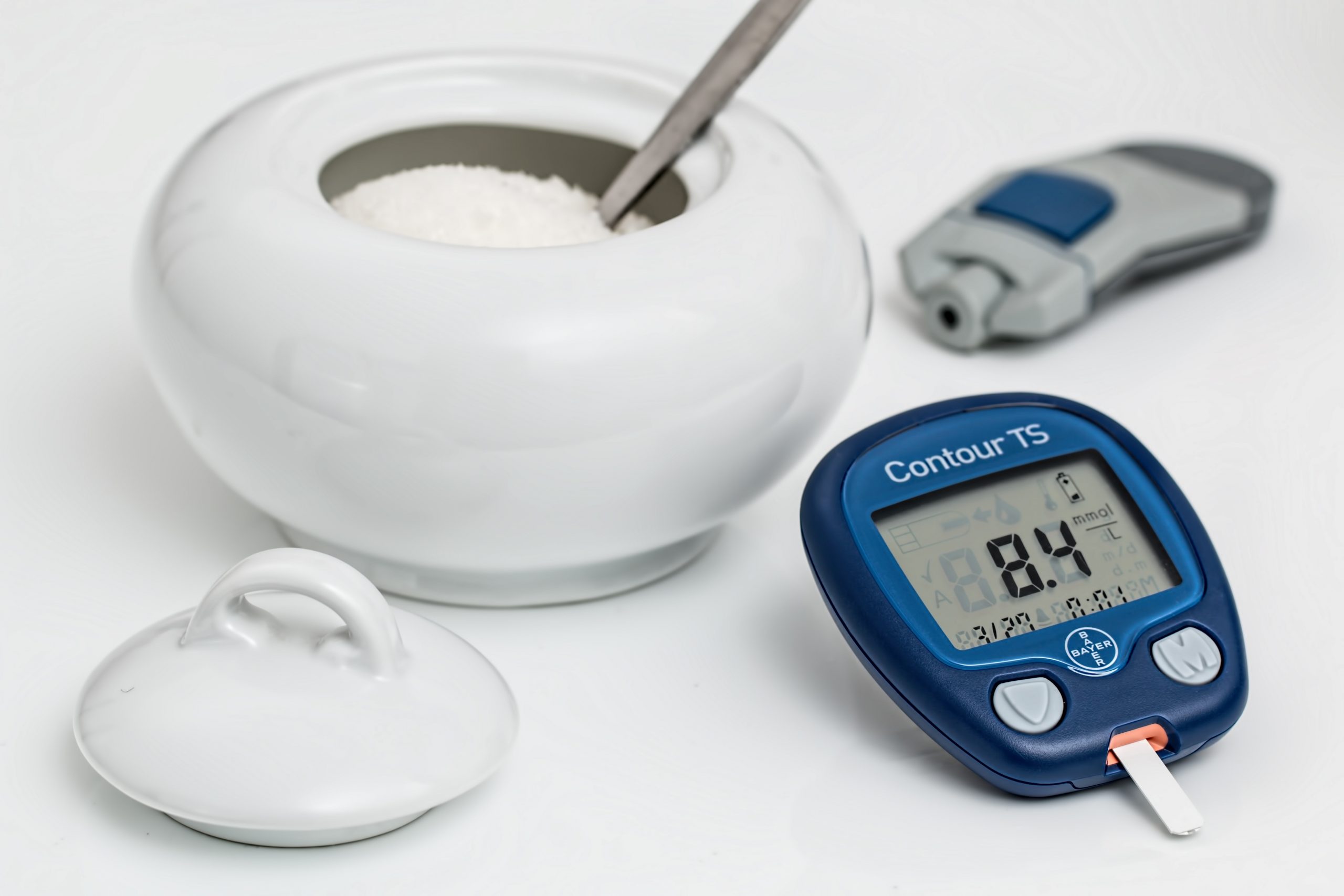
Janet Lewis: Hello and welcome to this week’s edition of the Green Wisdom Health Show. I’m Janet Lewis.
Dr. Lewis: And I’m Dr. Lewis.
Janet Lewis: And we are bringing you an exciting show about fish oil, which I’m sure all of you know something about or at least have heard of so this is not a random vitamin that you’ve never heard of. This is actually something that’s very commonplace; however, the differences in them are vast. So, this show is titled, “Fish Oil – Fat or Fiction,” and that’s not misenunciated, that is Dr. Lewis’ title. So, with that, Dr. Lewis can you tell us what we’re talking about? What has fat got to do with fish oil?
Dr. Lewis: God, I don’t even want to go there yet. It’s kine of like fast food. It’s funny how they slipped the “s” in there instead of calling it what it is, fat food, but we’ll get to that and how that’s related to fish oil in a minute. Where do you want me to start, Janet?
Janet Lewis: I want you to educate people about what they’re buying over-the-counter and what fish oil does and is it all the same?
Dr. Lewis: Yeah, I’m going to talk about what fish oil does. Some people don’t believe me and they’ll go get the cheap stuff and we’ve literally seen labs go to heck in a bucket because a person would change and go to a different cheap fish oil that may be contaminated. It’s like I go back to the thing you’ve heard so many times. You know, all women are not the same, I guarantee you. I’ve had the best in the world in Janet and I’ve had … okay, let’s go to fish oil. There’s a lot of things that you need to know and it’s very, very, very important. Sometimes on the internet, you can read anything on the internet. Now they’re saying all fish oil is not helpful, it’s this, it’s that, it’s that they always come back and poo-poo something that’s good. I wouldn’t say be careful what you read, but I’d definitely say be really, really careful what you believe because there’s a lot of people that say things that aren’t true.
Dr. Lewis: They used to say smoking actually helped your digestion. They used to have cocaine in Coca-Cola and I’m not sure they shouldn’t bring that back, but you know, that’s another topic. They used to say sugar is good for you. They used to say butter is bad and now they’re saying, no, margarine is bad. They used to say eggs are bad and I don’t know how anybody could believe that, but okay.
Janet Lewis: Well, that’s the problem. You hear such positive and negative things from everything now. How do you know what to believe?
Dr. Lewis: Believe me.
Janet Lewis: I guess research.
Dr. Lewis: I do a lot of research and then on that subject, you can get on the internet and read anything you want, good, bad, ugly and in-between. You know, God gave us discerning spirit and I think … I may be wrong, but I think some people have forgotten they have a discerning spirit and they’ve gotten to where they don’t trust their intuition. Intuition, to a big degree comes out of the GI tract, your gut feeling and our guts are so messed up, which we’re going to get into because Eddie, from up there close to Chicago asked a question and we’ll get into that in a minute. But just a few facts on fish oil. You know me. I’m going to go down rabbit trails and I hope you can make sense because I write about two or three hours worth of stuff that we try to cram into a 30-minute show and that’s why I talk fast and that’s the only time I talk fast.
Dr. Lewis: This has nothing to do with fish oil, but I’ll lead up to it and this is from some really good sources that says Ritalin is essentially the same as cocaine. Then I’m going to go into why should you take fish oil. The anti-inflammatory properties of fish oil with antioxidants, that’s important. I take the big dog vitamin E, but the antioxidant vitamin E added to it, prevents or helps to prevent immune and autoimmune diseases. There is research out of Harvard that says omega-three fatty acids are vital for the treatment of depression and we’ll get into a lot of different disease processes or symptoms that fish oil could potentially help your body help itself. Of course, the FDA disclaimer, none of this affects your symptoms or disease. Not intended to cure diseases and all that kind of stuff. It’s like, well, of course not, but we have forgotten that our body can.
Dr. Lewis: Omega-three fatty acids, and they need to be a good one. The one we use is 393% more absorption than the regular fish oil because of the form and the purity. One thing, it does have antioxidants in it. One thing people don’t really know is some of these places say well it comes from Sweden and Norway and a lot of the good fish oil does, but they catch them little rascals down around, some of them, Central America and South America and by the time they ship it up to Sweden and Norway, all that’s rancid and then they have to use all kinds … you want to say a plethora, that’s a word … I don’t know if that’s correct, of chemicals to decrease the rancid part and then what are you really, really getting?
Dr. Lewis: So, there’s also a study that said omega-three fatty acids are a better option than the NSAIDS, that’s non-steroidal anti-inflammatory drugs which is aspirin, Advil, Tylenol, Naproxen Sodium. It’s a better option than NSAIDS because they have no side effects and they help prevent autoimmune diseases and they also have curative effects. This is also out of Harvard and I keep mentioning autoimmune because that’s going to go back to Eddie’s question on leaky gut.
Janet Lewis: Can I talk a little bit about what they’re looking for in a fish oil because I think people would be completely flabbergasted at what the ingredients are in the fish oil and then the next question is well, yours is expensive, but it’s not.
Dr. Lewis: No, it’s really not.
Janet Lewis: Not when you compare what you’re getting. One of our soft gels, what you want to look for is the ratio of the EPA and DHA ratio on fish oil and if it don’t break it down and it just says it’s combined and makes this amount, you don’t want that. You want it broke down. On our bottle it actually says, which I’m talking about the Orthomega, one soft gel is 950 milligrams. It is broke down by EPA of being 430 milligrams and DHA 390 milligrams and then the additional omega is 130 milligrams so it makes 950.
Dr. Lewis: But, keep in mind, that it’s also the ones that through research are 393% more absorbable. And we can get them stronger than that, but we always have a good blend of what you spend versus what you get. If you want it more powerful, we can get it, but this for the price is the best bet by far and that’s what Janet and I take, except I take the liquid.
Janet Lewis: The reason we recommend this is because you can see the breakdown on it. You can see that it’s extremely strong. I would ask that you go to your health food store and look and find one that’s equally as strong and I could almost bet you a $100 bill you will not.
Dr. Lewis: And then, is it the fake stuff coming from South and Central America.
Janet Lewis: And then what we’re wanting to use this for is actually to help move lab values because believe it or not when you’re running your cholesterol panel, which we run on our lab panel, if you’re HDLs on the cholesterol are lower, you’re lacking a good fish oil. A good fish oil will actually help bring that up higher and it’ll actually help put your triglycerides lower. So, you need diet changes as well, but a good fish oil on its own will help bring that down into a normal range, so it’s not about masking it with cholesterol medication. It’s actually about getting the different levels of the cholesterol correct and LDLs on there are more about hormonal imbalances and we’re educating them now a little bit about labs, so when somebody’s running cholesterol, you know, their whole deal is let’s just give you a pill and let’s just make it all right.
Dr. Lewis: We use lab because how do you know where you’re going if you don’t have a map or if you don’t have a destination and this will tell you where you are so you know where you want to go and where you need to go. And people say, “But I feel good.” I don’t care how you feel. You can drop dead tomorrow and not ever feel it.
Janet Lewis: But I can tell you on our lab and we give them this fish oil, the numbers start getting back right like they’re supposed to be, so that’s what you’re looking for when he’s talking to you about that.
Dr. Lewis: And we’ll talk about all kinds of different things, but there’s the differences in DHA. DHA is like, I think it’s a 22 carbon long essential fatty acid and it says essential because your body cannot produce it. And then I treat a lot of vegans and you know, if you want to eat that way that’s fine, but you can’t get this from flaxseed and flaxseed is probably your best plant source of omega threes.
Janet Lewis: And explain that a little bit, too, because people do come in here and say, “Well, how about I just take flaxseed?”
Dr. Lewis: Well, you better eat a bale of it every day and then you couldn’t digest it and assimilate it and flaxseed is not a bad thing. Well, it’s better if you get it organic and better if you grind it right before you consume it because it can go rancid and I don’t think taking flaxseed’s a bad thing, I take it, but it’s just not complete.
Janet Lewis: Well, we just use fish oil because the fish has already broken it down.
Dr. Lewis: Oh, good point and I was going to talk about that sometime, about cows. Why not let them use the energy to make the omega threes and that’s the difference between and I might get into it more later, but that’s the difference between grass fed versus grass finished or grain fed. The grass fed beef has extremely higher percentages of the omega threes and the problem in today’s society is we have about a 1:20 ratio of omega threes to the inflammatory omega sixes and nines. It needs to be about a 1:2 ratio to 2:1. We need more omega threes by a long-shot to offset the inflammatory oils and they come hidden in all kinds of things. So, DHA is the one that helps build the brain. If you want a healthier baby, you need to eat the holy heck out of it. Take digestive enzymes. Use probiotics, because you will develop a healthier baby that has a healthier, more well-developed brain and central nervous system, plus higher immune system.
Dr. Lewis: There’s a really good book called, “Smart Fats.” There’s another book called, “The Miracle Brain.” And then there’s one, “Eating Well For Optimal Health.” They’re all really, really good books and there’s just tons and tons of studies. I won’t take too much time. I won’t say too much about that, just because I have two or three hours of stuff to talk about and I’ll never get around to it. The linoleic acid which is something that most people say, “Oh, well that’ll turn into-” and the answer is, “No, it doesn’t.” That’s the stuff you get from corn oil, cottonseed oil, sunflower, safflower, peanut, soy and canola. I think you should avoid the holy heck out of all of them except, I’m not so sure about sunflower oil. I kind of like it, when you can get organic sources of it and since socialism works so well, that’s why we can’t get organic sunflower oil much because Venezuela and socialism’s working so good, so beware of what you ask for. You might become Venezuela. But, there’s a lot of chemical processes as it goes through this … some of it’s beyond me.
Dr. Lewis: Some of these inflammatory acids, arachidonic acid, is actually inhibited by the EPA in the fish oil, so it stops a lot of the inflammation. Then, if it goes into too much arachidonic acid, then you get into the COX-1, COX-2, COX-3, which causes pain that’s activated by insulin. It just goes on and on and on and the end result is inflammation, immune system dysfunction, vascular disease, pain, degenerative joint disease, fibrosis, fibromyalgia and an increase in free radicals. Okay, enough chemistry, because frankly that’s all I know. You can go to alpha linoleic acid and that’s back into chemistry … that’s the one you get from flaxseed oil and it is converted to EPAs slightly, but it’s better if you get it from the cold water fatty fish because they’ve already used energy to create it through their livers, but it’s incredibly anti-inflammatory and then it’s converted into DHA which is incredible to build the brain, the synapsis, increases the production of serotonin and dopamine. If you’ve got enough serotonin and dopamine, hey you’re a happy camper. Give it to your spouse if they’re grumpy as heck.
Dr. Lewis: Okay, this is a Stevenism, so pay attention. Classic inflammation hurts. Silent inflammation kills slowly. Stevenism 101. And that’s the toxic fat. Waiting for Janet to jump in here. I think once she sees me on my soapbox, she doesn’t want me to step down from the pulpit.
Janet Lewis: I’m just looking for my opportunity.
Dr. Lewis: Go ahead.
Janet Lewis: I just wondered if you guys know about all the different things that fish oil does, actually, that’s very good. In fact, actually there’s 13 different things that we have listed here that it helps with and a couple of them I really didn’t know so it was kind of intriguing.
Dr. Lewis: It may be a little bit beyond what I just said. I think Janet has a very, very good list.
Janet Lewis: Yeah, there’s ADHD which I think you mentioned.
Dr. Lewis: And sometimes I have it.
Janet Lewis: Alzheimer’s disease.
Dr. Lewis: And Alzheimer’s, not just Alzheimer’s, but any neurodegenerative disease like Parkinson’s, dementia, brain fog, brain fart … oh, I didn’t say it … chronic headaches.
Janet Lewis: Anxiety.
Dr. Lewis: I’m anxious about it, baby.
Janet Lewis: Arthritis. I know it helps joints a lot.
Dr. Lewis: Big time.
Janet Lewis: Cancer, actually.
Dr. Lewis: And since it helps joints, it also helps rheumatoid arthritis because of the autoimmune connection.
Janet Lewis: The cancer, it’s been proven that it makes conventional cancer drugs more effective.
Dr. Lewis: Yeah, absolutely.
Janet Lewis: But it’s also an effective standalone therapy and natural cancer treatment, believe it or not.
Dr. Lewis: And there’s more and more doctors that are being very cooperative with me. I just got a referral from Shreveport from a gastroenterologist and it’s getting better. The MDs and DOs are good people. They do a lot of good things and they’re getting better and better about sending their patients to people like me, not as an alternative to medicine, but as an adjunct and complementary. I’m impressed with the medical profession for doing that.
Janet Lewis: It helps with cardiovascular disease which we kind of already knew that a little bit.
Dr. Lewis: Janet does like to keep my blood pressure down.
Janet Lewis: Diabetes.
Dr. Lewis: Say it like Wilfred Brimley. Diabetes.
Janet Lewis: Diabetes, or diabet-ees, that’s what they usually say. Eye disorders and I can tell you for a fact when I miss my Orthomega, I know my eyes are more dry. It really does help dry eyes.
Dr. Lewis: And after her LASIK surgery, which nobody knows she got, I started looking prettier, but she had dry eyes, so I told her to add borage oil with it and that did a really good job to enhance the EPAs and the DHAs from the fish oil.
Janet Lewis: It helps with immune system function because when the antioxidant astaxanthin is combined with fish oil, the immune boosting power is multiplied.
Dr. Lewis: Yeah, and we don’t sell a lot of it because some people they get to their limit before that, but Janet and I take it and she’s way prettier than me, so I think she takes more of it, but astaxanthin’s probably one of the best antioxidants you can take.
Janet Lewis: In women, fish oil helps skin and hair, which is the only thing we really care about.
Dr. Lewis: I don’t know about testosterone, that’s all men care about.
Janet Lewis: All they care about. Women don’t want to lose their hair and they want their skin to look good.
Dr. Lewis: But they don’t care if their man has testosterone. Go figure. They just want to look pretty and … never mind.
Janet Lewis: It helps with fertility and pregnancy, actually. DHA and EPA play key roles in sperm health and mobility, so somehow it makes them move faster.
Dr. Lewis: You make stronger swimmers.
Janet Lewis: I guess, along with increasing female fertility and also you need it when you’re pregnant because your baby is taking all of yours and that’s a lot of times what makes women go kind of nutty in the head afterwards.
Dr. Lewis: Yeah, but men, you’ll live longer if you don’t say anything about it.
Janet Lewis: Yeah, but give them fish oil because that’s what the baby just took from you and plus you need it when you feed the baby, when you’re breastfeeding because it’ll actually be smarter if it takes it. And the big one, which I think is pretty darned exciting, number 13, is weight loss which Dr. Lewis keeps alluding to in his-
Dr. Lewis: You ever seen a fat fish?
Janet Lewis: Well, that’s because they’re swimming. Is it not?
Dr. Lewis: I don’t know. Next time I catch a catfish I’ll ask him.
Janet Lewis: Well, I figured a fish was thin because it’s swimming all the time.
Dr. Lewis: Sorry, people. You know, this is the South and we have people that listen from all different kind of countries, so in the south, my friend from Michigan said, “I don’t understand how you catch and eat a catfish.” I said, “Well, you go bow hunting for carp and you eat that nasty thing,” so there are a lot of regional differences, so pardon me if I don’t eat a carp, but I will eat a catfish, the bottom feeder.
Janet Lewis: Well, it actually showed the effects of weight loss in fish oil and the combination with diet and exercise in the May 2000 issue of American Journal of Clinical Nutrition and the results showed that a combination of fish oil supplements and a regular exercise program can reduce body fat while also improving heart and metabolic health.
Dr. Lewis: Well, also, it’s because the higher fat content, the more your body feels full and happy and that’s why I’m a big fan of keto. Paleo is okay, but I like keto, because it’s higher fat. It has to be the good fats, though, and it keeps your brain happier and is very anti-inflammatory.
Janet Lewis: Yup, it actually helps stimulate the use of fatty acids for the production of energy in healthy adults.
Dr. Lewis: And I’ve heard this a couple of times once today and once I think yesterday. Well, I’m on keto and I’m tired. Listen, that’s normal. Your body has to do a lot of conversion to go from burning glucose to burning fat, so just hang with the lack of energy and that’s why we have sold out of Mitocore, which is energy producer, but we’ll get some more and if we don’t get to the questions, we won’t get to the questions, but-
Janet Lewis: Oh, no, we’re getting to questions.
Dr. Lewis: Oh, okay.
Janet Lewis: Because we had several of them and we always asked you guys which, if you’re not a fan on our Shoot’n Straight with Dr. Lewis on Facebook, just either send me an email to janet@greenwisdomhealth.com and we can include you that way or just go on Facebook and ask to be a friend of Shoot’n Straight and that has no “i” in it and no “g.” It’s S-H-O-O-T apostrophe “n.”
Dr. Lewis: There we go talking southern for you people that aren’t southerners.
Janet Lewis: Right, but we always ask the people in that group give us questions for the show so we can educate you on the things that you’re most interested in. And we have one from Carl, who happens to be a local client of ours and he wants to know how toxins affect vision?
Dr. Lewis: You know, there are a lot of toxins that affect vision and I still tell people go to a good optometrist or if that’s not appropriate, go to an ophthalmologist, but I’ve seen people that seem to have a lot of mold intoxication, you know, a dirty building or dirty house, something like that, that can work. Then I had a 94-year-old missionary in here this week. He got toxins from his drugs and woke up blind. Of course, that was just temporary, so worry about drug reactions. But I think seeing an eye specialist and my suggestion is take a lot of vitamin C. We like the liposomal kind because it’s greatly enhanced absorption and take NAC, acetylcysteine, because that helps the liver detoxify, helps create glutathione, helps create energy and with the glutathione it begins to take a lot of the toxins out. I’ve had several people say well, since you put me on this NAC, I see better. It’s like, “Go to your optometrist and measure it, but that’s very possible.”
Janet Lewis: And one way you can tell if you’re full of toxins which we always suggest people do lab work, when your liver enzymes are high, your eyes obviously won’t work as well because you’re toxic, but there’s no way for you to know that without seeing it on lab. That’s why we were talking about the cholesterol panel and liver enzymes now. One of the most easy ways is to do the low cost lab panel that we have. It’s 12 different panels, which you don’t ever see that happening at your doctor’s office because they are, by law, not allowed to do that because of insurance. We don’t do insurance and that’s why we run what we want to run because we want to see the body as a whole and not just one to three panels. So we run 12 and one of those 12 panels is a CMP which is a complete metabolic panel and it does have liver enzymes in it, so we’re able to tell if you’re toxic or not. And if the liver enzymes get right, then your eyes will feel much better as well.
Janet Lewis: If you’re thinking, hey y’all are in Texas and that’s a heck of a deal, we’re actually able to do that across the United States, so go to our website, greenwisdomhealth.com. You’ll see it on there. It says GWH3 because that includes Dr. Lewis’ consultation to go over the results so he can tell you if you’re toxic.
Dr. Lewis: Thirty minutes of lab explanations and Stevenisms.
Janet Lewis: That’s right. Also comes with a functional medicine report. It comes with a supplement recommendation sheet so we don’t just leave you in the closet and say, “Hey, good luck to you.” We actually tell you what to take and how to take it and for how long and actually show you on followup lab that it’s better. So, you can’t beat it. There’s usually a lab local to you because like I said, we can run it anywhere. You just have it drawn somewhere close to you and the results come back to us and Dr. Lewis takes it from there.
Dr. Lewis: Yeah, unless you live in someplace like Wyoming. I talked to a lady in Iowa. Sometimes the labs are little bit further, but they’re used to driving a hundred miles. She’s about to ask another question, but I’m going to throw this in. It’s off the subject. It’s the flu season. Everybody wants you to get a flu shot and you can or not, that’s up to you, but there are major studies that said over a 3 year period, so that’s a good study, three years, taking 800 IUs of vitamin D and that’s not much vitamin D, not enough, but 800 IUs of vitamin D reduce colds and flu by 70%, so why are they not screaming to high heaven about take vitamin D? And then people went from 800 to 2,000 IUs and that’s still not enough for 99% of the people, 2,000 IUs reduced the instance of colds and flu to nearly zero. There was only one case in 104 users. Vitamin D, folks. And that’s from Epidemiology and Infection. That’s not my opinion. This is from high class medical research.
Janet Lewis: Oh, not just the thing you find randomly on the internet?
Dr. Lewis: Nope.
Janet Lewis: Okay.
Dr. Lewis: I don’t listen to that.
Janet Lewis: We have just a few minutes left and this next question is from Eddie and he would like to know how to heal leaky gut and how long does it take to heal and how do you know you’re healed?
Dr. Lewis: Do you want to answer that?
Janet Lewis: Actually, leaky gut is a big problem for a lot of people.
Dr. Lewis: A lot of people. Anybody eating genetically-modified grains.
Janet Lewis: Yeah, it’s a modern day plague that’s killing us from the inside out. It’s actually caused by food, stress, environmental exposures and a combination of other factors. Basically the large molecules pass through the small intestine into the bloodstream and then the large molecules aren’t sufficiently broken down and are not meant to enter the bloodstream quite yet. They’re supposed to be broken down by the celia in the small intestine, so in essence, the large molecules have escaped the small intestine through leaks between the cells. That causes things like autoimmune problems, debilitating autoimmune problems which, over the last 30 years, have become increased exponentially.
Dr. Lewis: Obvious to us. We see more people have it. And Floyd kind of answered this. I answered Eddie with an article from his herbal studies and this is actually from a different study, but you know, Floyd gave a really, really good answer, so thank you for that.
Janet Lewis: But we actually have a product now that we are really excited about that goes in and helps to repair leaky gut. I know that it works because I take it myself. The problem is, it’s relatively new. I think we’ve only had it about six or eight months now, so to answer Eddie’s question, I don’t know how long you have to take it before you’re well. I just know when I don’t take it, I feel horrible, so.
Dr. Lewis: I’m not sure you’re ever really healed, but you can certainly be greatly, greatly … most of it can be healed and then you can maintain because we get people that have celiac and Crohn’s and they say, “Oh, my God, this better. Oh, my God, they noticed at Thanksgiving how much better I was.”
Janet Lewis: Well, it used to be that we only had colostrum, which is an IgG. It protects the intestines by blocking and binding toxins in the gut. The problem with colostrum is that it’s from cows and some people are sensitive and they can’t tolerate even trace amounts of dairy, so we have the new product called SBI. It’s from bovine.
Dr. Lewis: Well, even though that is a cow, it seems to be a cleaner source. It seems to be better tolerated and we do have another one if you need to, that comes from eggs. So we use the cow first.
Janet Lewis: Yes, but basically it helps things like the leaky gut, colitis, ulcerative colitis, IBS, Crohn’s disease and diarrhea associated with celiac disease, so you have people that tell you they have irritable bowel, the SBI Protect really helps control that.
Dr. Lewis: With massive amounts of good probiotics and we have some pretty major probiotics. It works faster.
Janet Lewis: And it’s even being used with C-diff and HIV enteropathy infections.
Dr. Lewis: And you know one of the other things? We use a lot of Glutashield with great success. There’s another product called Inflammacore for those that want to make a drink in the morning. It’s one of the things I have and I don’t have enough time to read all of the ingredients here, but it has some great immune-boosting products here and we get super, super results. We kind of sell out from time to time. I guess we’re going to have to up the stock we keep.
Janet Lewis: The SBI Protect, though, is from a completely non-dairy source of immunoglobulin-G.
Dr. Lewis: So, I don’t really know, Eddie, when you know you’re healed, but Eddie also told me his mother-in-law is a whole new person. Because I was talking to Eddie as Janet and I were driving the new RV back from Colorado. This was what? Two or three months ago and I said, put your mother-in-law on this, this and this and he says she’s a whole different person. She can eat. She’s smiling and happy, where she wasn’t before and her personality shines for the better and it’s like, “Well, she’s your mother-in-law, she’s supposed to be lovely,” and he says, “Yes, and now she is.”
Janet Lewis: Well, one rule of thumb with healing? It takes a minimum of three months before you begin to heal and then it’s a month for every year you’ve had the problem, so that’s why I tell you, I don’t know how long because I’ve had this all my life and I’m only 29 now, I know, but for the last 20 years of it, I’ve had-
Dr. Lewis: There’s a time when I should always keep my mouth shut and I usually don’t.
Janet Lewis: So, I haven’t been on it long enough yet to get to that complete healing stage, so we’ll keep you posted on it. And with that being said, we have come to the conclusion of our show again. This goes by so fast. We really appreciate that you’re listening to us and we really appreciate you guys’ questions. Maggie, I know you had a question. I promise we’ll get to it next week. I’ll have Dr. Lewis all sharpened up and honed in.
Dr. Lewis: And Brian sent in a good question and that’s a good reason you need to join Shoot’n Straight with Dr. Lewis because you get a lot of information, a lot of experience for other people, so just sign up for Shoot’n Straight and you’ll learn a lot. It’ll be worth it.
Janet Lewis: You guys have a blessed week.









